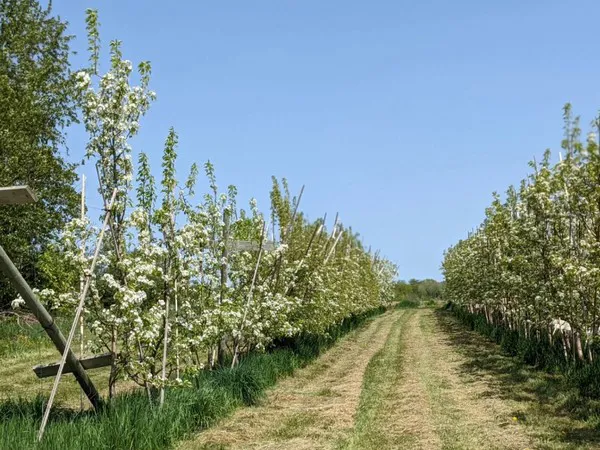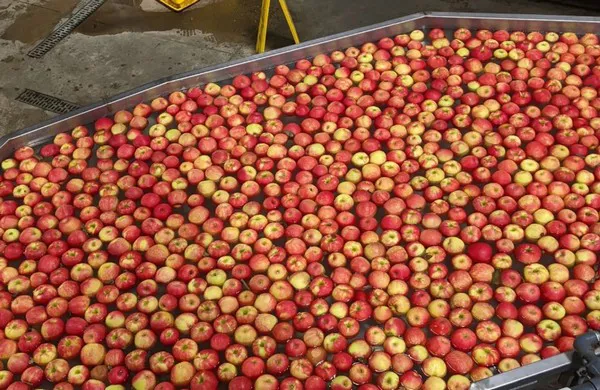Following extreme temperature fluctuations over the winter, Nova Scotia looks as though it won’t be seeing a stone fruit crop this year. “The winter was extremely mild and we didn’t have the cold hardiness develop in the orchards that we generally have,” says Emily Lutz, executive director for the Nova Scotia Fruit Growers’ Association, noting that it represents tree fruit for the most part and only about five percent of that is stone fruit.
 Extreme temperature fluctuations in February largely affected the peach crop bloom. Lutz says there is also a reduced apple bloom in the province.
Extreme temperature fluctuations in February largely affected the peach crop bloom. Lutz says there is also a reduced apple bloom in the province.
Then, at the beginning of February, a cold snap hit, plunging temperatures down to -26 to -29 degrees Celsius. “The trees were just not prepared and we’re basically seeing extensive winter damage in stone fruit,” says Lutz. That means that when the middle of May hit, which would normally be bloom season, there were some buds formed on the tree that were dead inside. “You ran your hand along the branch and the buds fell down. There was basically no bloom to speak of,” she says.
Future concerns
Peaches are the biggest stone fruit item grown in Nova Scotia and aren’t a particularly cold-tolerant crop--they hold on temperature-wise until about -23 degrees Celsius. “We’re also seeing damage to the trees themselves. It’s one thing to not have a crop this year but we don’t know the full extent of the damage until maybe next year’s crop which could also be impacted,” says Lutz. Tree replacement may also be needed, an added cost to growers in not only replacing trees but losing some three to five years of crops while they get those trees up to full size.
 Apples are a more cold-hardy crop that can withstand temperatures until -32 degrees Celsius.
Apples are a more cold-hardy crop that can withstand temperatures until -32 degrees Celsius.
On apples, there’s also a reduced bloom in the province this season, thanks also to a cold spring which caused some frost damage. Though apples are a more cold-hardy crop that can withstand temperatures until -32 degrees Celsius. “That makes them a reliable crop for our cold winters. However, it’s the extreme swing in temperatures that’s the issue. Any tree block that may have an existing injury, disease pressure, etc. would be more susceptible to damage,” says Lutz. “It is a great bloom for the most part and it looks like a fine year for apples. However sometimes with these things, it takes years to discover the impact.”
 For more information:
For more information:
Emily Lutz
Nova Scotia Fruit Growers’ Association
Tel: +1 (902) 678-1093
[email protected]
http://www.nsfga.com/
